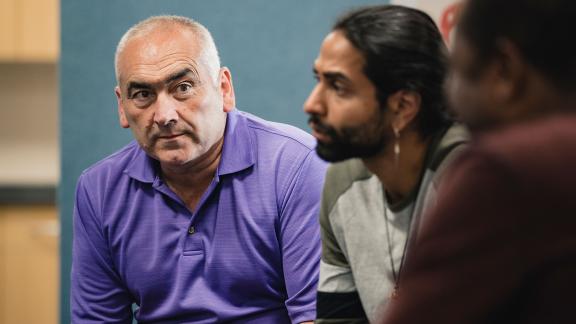Working in partnership to build a just and learning culture

Overview
An increasing number of challenges from staff against the outcomes of staff disciplinaries, and inspiration by Mersey Care NHS Foundation Trust’s just and learning culture journey, prompted Cornwall Partnership NHS Foundation Trust to review their disciplinary procedure. Establishing a steering group that included representation from both management and staff side, the trust redeveloped many of its disciplinary policies, strengthened communication between all parties and brought in new systems to support staff through the disciplinary process. This new approach has led to a large decrease in negative outcomes in staff disciplinary cases and has encouraged the trust to work in partnership to review more of its HR policies and processes.
Background
Cornwall Partnership NHS Foundation Trust was experiencing an increasing number of challenges from both the trade unions and the employment relations lead on the outcomes of some disciplinary processes. At a regional HR Director (HRD) network and Social Partnership Forum (SPF) meeting, the HRD from the trust heard from Mersey Care about their journey implementing a just and learning culture. The HRD committed the HR team to make positive changes, by ensuring HR policies were written, applied, and managed in partnership. The team agreed that the area where this approach could have the most positive impact was disciplinary policy and processes.
Action taken
A steering group was set up, consisting of representatives from trade unions, HR, operational management and non-executive directors. The group further explored Mersey Care’s work into just and learning culture and reviewed their own disciplinary processes, revising policies on automatic investigation, suspension, and assumption of guilt for patient related incidents.
The trust developed and implemented a suspension risk assessment and began conducting an initial fact find to gather information from all parties as soon as an issue was raised.
Employee support mechanisms were introduced, to make sure employees fully understood the investigation and hearing process.
There was honest and open communication between the trade unions and HR team through this process resulting in increased trust and strengthened partnership working.
Coaching and training on the new policy and processes were provided by the HR team to line managers, to make sure that the rationale and benefits behind the new processes were clear, as well as what was expected of them.
The role of partnership working
From the outset of the project the trust decided that involving trade unions would be vital to its success. Representatives from multiple stakeholder groups, included trade unions, were involved in the steering group from its inception. The group recognised that to build strong partnership working, they must embrace a spirit of mutual respect, with healthy challenge, and a belief in open and honest conversations where all parties are listened to. All involved were enthusiastic and committed to reducing the negative impact of disciplinary procedures on staff, as well as improving wellbeing. Going forward all agreed that partnership working must be a central feature of tackling workforce issues.
Results and benefits
The trust compared disciplinary cases from the 2017/18 and 2020/21 years, and found the new policy had made a significant positive impact as follows:
- investigated cases were down from 78 to three
- suspensions were down from 24 to one
- dismissals were down from 21 to one
- warnings given were down from 23 to one
- investigations resulting in no case to answer were down from 25 to zero; and
- cases handled informally rose from nine to 42.
The changes have also seen a reduction in costs related to disciplinary issues and an improvement in staff experience and wellbeing, leading to improved patient care.
Having seen positive results from a partnership working review of disciplinary procedures, the trust is now continuing to review sickness absence and other HR policies in partnership.
Sharing learning
Cornwall Partnership NHS Foundation Trust has already begun sharing this work with other trusts. They have presented it to a regional social partnership forum and at a National SPF Wider Group meeting, highlighting the work to the Minister for Care and national trade union reps. The trust believes this work can be replicated in any organisation.
Key learnings from the project
- Language is important - the disciplinary policy is under review again to remove terminology that does not meet the principles of a just and learning culture.
- Early, honest and open communication between all parties leads to faster and more effective resolution of problems.
- Trust is essential between all parties. The introduction of an initial fact find has seen a reduction in formal cases involving staff side support so staff side need to be happy that staff are being treated appropriately.
- Take the time to listen, hear and believe staff.
- Some managers are more proactive than others in the completion of timely initial fact finds, resulting in some inconsistency. Training and support from HR colleagues is essential.
- Just because something has always been done in a particular way, doesn't mean it is right or that it should remain. Positive change can be made safely and in partnership.
Further information
For further information on the project, you can contact Leah Brewer, Head of Employment Relations at Cornwall Partnership NHS FT



